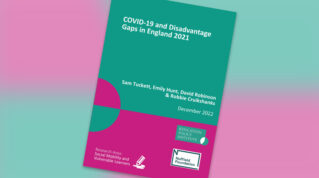The government is planning to evaluate its subsidised tuition scheme for 16-to-19-year-olds – after almost a quarter of eligible providers opted out of the fund in its first year.
A prior information notice has been issued by the Department for Education to alert researchers that they will soon tender for a supplier to measure the impact of the 16 to 19 tuition fund.
The scheme was launched last year, backed with an initial £96 million, as part of the government’s education recovery package to combat lost learning caused by Covid-19. An additional £222 million has since been earmarked to extend the scheme into 2021/22.
It aims to support small group tuition for sixth form-aged students in English, maths and other subjects that have been disrupted by the pandemic. Students are eligible if they have not achieved a GCSE grade 4 or 5 in English and/or maths or have a grade 4 or above and are from an economically disadvantaged background.
The information notice states that the research will aim to find out how the fund has been used by schools, colleges and training providers, how it has supported learners, and how it can be improved in “future years” – hinting that the scheme could be extended beyond 2022.
Researchers will also seek to measure the impact of the fund on educational attainment, whether this differs by type of course and learner characteristics.
The notice warns that the “universality” of the fund makes designing an impact evaluation “challenging” as there is “no significant control or comparison group”.
However, it adds that that in the academic year 2020/21, a total of 1,869 out of the 2,427 eligible 16 to 19 providers in England opted into the fund, while 558 (23 per cent) opted out.
The DfE states that while it may be possible to construct a comparison group from these 558 providers, this “could be difficult because the two groups may not be comparable”.
FE Week analysis of tuition fund allocations last year found that it was largely schools and academies with sixth forms that turned away from the scheme, with nearly all general FE colleges, sixth form colleges, and the majority of eligible independent training providers opting in.
Around £93 million of the promised £96 million was spent.
The DfE warns that another challenge for researchers is that schools and colleges can decide “how to use the money, for example through what tutors they will use and what learners they will put forward for tutoring”.
And given the many subjects the fund can be used for, as well as the opportunity to use the fund for enrichment activities, the department believes samples will be “too small to explore all subjects and uses of the fund”.
It therefore proposes that the impact evaluation focuses on outcomes in English and maths only.
The DfE offers up four “ideas” for how researchers could measure the impact of the scheme. These are:
- Recruitment of an intervention group of providers who opted into the fund alongside a comparison group from those providers who did not opt in. The comparison group would need to be a “balanced sample that was broadly in line with the intervention group in terms of characteristics”.
- Constructing a “counterfactual” from those eligible learners in England who have not been chosen to receive tutoring. This would, however, introduce “significant learner selection bias into the evaluation, through unobserved factors such as their motivation or engagement with learning that are likely to influence provider decisions about which learners are offered tutoring”.
- Constructing a counterfactual through modelling using past attainment data for similar groups of learners to predict likely attainment outcomes in the absence of the intervention.
- Using “dosage of tutoring” to explore impact, for example comparing academic outcomes for students receiving five hours of tutoring vs 12 hours.
The tender will be worth £250,000 and run from November 2021 to March 2023. There is no proposed date for when the procurement will launch.

















Your thoughts